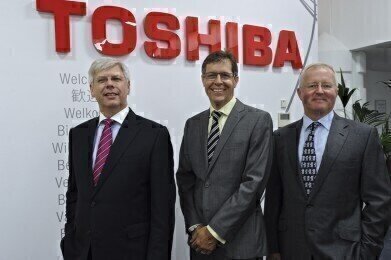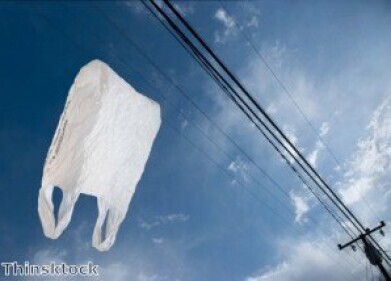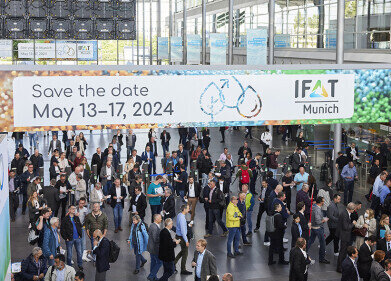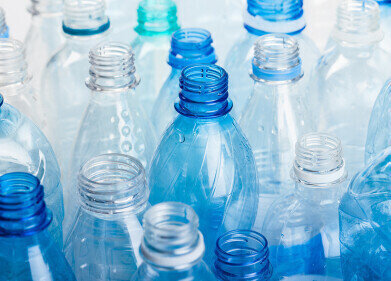Waste Management
Working Towards Achieving Zero Waste to Landfill
Jul 30 2013
In a bid to achieve its goal of ‘zero waste to landfill’, Toshiba Medical Systems (TMS-UK) has embarked on an environmental improvement journey that has reduced the company’s impact on the environment in a variety of ways, including fuel-, energy- and waste-reduction.
“Toshiba Medical Systems UK is passionately fulfilling its global initiatives,” says MD Mark Hitchman, “which includes meeting ISO 14001, the international standard related to helping organisations manage operations that might affect the environment. This is a big priority for us and one in which we have made great inroads since we achieved certification to ISO14001 in 2007 when we made this commitment. We are very proud of the work we have done so far.”
The policy is inspired by the philosophy of its parent company in Japan, which has made a strong commitment to the environment, gaining ISO14001 certification back in the 1990s. In fact, Toshiba’s factory in Japan is located in a national park and includes a koi pond in its reception area that uses treated waste water from the plant.
Achievements at the Toshiba Medical Systems UK headquarters have thus far included:
Toshiba cars used to be leased on price alone; but now it’s their Co2 usage that is a top priority. None of its cars have more than 160g Co2/km and the fleet now includes 14 hybrid vehicles.
In FY06/07, the average company car had Co2 emissions of 167g of Co2/km. In FY11/12, the average company car had Co2 emissions of 136g of Co2/ km. Over the last five years, this equates to an emissions reduction of approximately 340 tonnes of Co2.
Toshiba has also reduced its fuel usage, with a year-on-year reduction of approximately 4,000 litres and more than £80,000 in savings.
To reduce the level of heat and air escaping into roof space, Toshiba insulated the ceiling of its headquarters building, which was built in the 1980s. Toshiba also re-programmed its air-handling systems to ensure a minimal level of energy escape. The company installed LED lighting throughout the building, along with light and motion sensors where possible so that lights would only be operational when needed.
Toshiba replaced its gas boilers with more energy efficient ones, achieving an energy rating that went from a G to an A.
To run the Crawley office, Toshiba in F06/07 used 141,255 kw/hrs of electricity; in FY11/12, it used 63,145 kw/hrs. This is a 55% reduction, equating to approximately 170 tonnes of Co2.
Says Darryl Collin, QA manager, “From these initiatives, we have halved our electricity and power bills and achieved a record-low energy usage level. This is not only good for Toshiba; but is also very good for the environment.”
The company has also substantially reduced its reliance on paper waste. In FY06/07, Toshiba used 307,500 sheets of paper. In FY 11/12, it used 214,000 sheets, for a reduction of 18 tonnes of paper, equating to one tonne of Co2. This is even more impressive when you consider that the company has increased turnover since then by more than 40%.
Toshiba has also cut down on the environmental impact of its packing materials, which are extensive due to the highly specialised nature of its equipment, some of which costs more than £1m, and is shipped from Japan. Toshiba uses a packaging material called ‘bran foam,’ which is made primarily of starch and is harmless to the environment. It also imports some of its equipment from European HQ in Holland without intensive packaging, but instead uses highly specialised shippers.
Toshiba supplies to hospitals some of the most energy-efficient scanners on the market today. Its Aquilion One, for example, received the highest ranking at the Eco Products Awards, sponsored by the Japan Institute of Design Promotion, for its energy efficiencies. It uses eVolution Hybrid Gantry, an innovative hybrid drive technology that converts energy during deceleration of the gantry, which is then recycled to power other gantry components. This thoughtful design feature minimises power consumption and reduces carbon footprint.
“From our scanners to our vehicles to all of our commodities, we strive to make the lowest possible impact on the environment,” says Mark. “This is a commitment we have made as a company and one that aligns with the whole of Toshiba’s philosophy of environmental stewardship. Next year,” says Mark, “we are well on our way to achieving ‘zero waste to landfill’.”
Events
Apr 24 2024 Sao Paulo, Brasil
May 05 2024 Seville, Spain
May 13 2024 Munich, Germany
May 23 2024 Beijing, China
May 23 2024 Beijing, China













